Brain Science Speaker Series
Thank you for your interest in our Brain Science Speaker Series! We periodically host scientists who have made substantial contributions to the field of neuroscience to speak about their work on LSU’s campus. Each speaker gives a presentation followed by a Q&A with LSU faculty and audience members.
Upcoming Presenters:
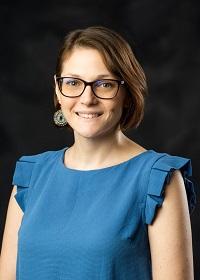 Leveling the Playing Field: Instructional Strategies for Supporting STEM Learning
in Low Spatial Students.
Leveling the Playing Field: Instructional Strategies for Supporting STEM Learning
in Low Spatial Students.
Allison Jaeger, Ph.D.
Thursday, March 5, 2026
3:30 - 5:00 PM
Dalton Woods Auditorium
Dr. Jaeger is an Assistant Professor of Cognitive Science in the Psychology Department at Mississippi State University. As the director of the STEM Thinking and Reasoning (STAR) Lab, her research focuses on how individual differences in learner characteristics and instructional factors may interact with and impact successful comprehension in science. In particular, she investigates the role of spatial thinking skill in successful STEM learning and how materials and instructions can be designed to support learning for all types of students. For example, she has received funding from the National Science Foundation to study the effective use of student-generated drawings in enhancing learning, as well as how instructors’ use of analogies impacts students’ understanding in geoscience.
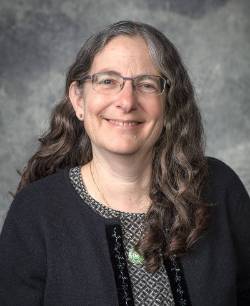 Sequential pattern learning deficits in developmental language disorder
Sequential pattern learning deficits in developmental language disorder
Lisa Goffman, Ph.D.
Tuesday, March 17, 2026
3:30 - 5:00 PM
Dalton Woods Auditorium
Dr. Goffman is a Senior Scientist and Endowed Chair, Center for Childhood Deafness, Language, & Learning at Boys Town National Research Hospital. She directs the Language in Motion Lab, a group of clinical scientists and speech-language pathologists who study how language, speech, cognitive and motor domains interact in children with developmental language disorder (DLD), speech sound disorder (SSD), and typical speech and language development. Her research has been funded by the National Institute on Deafness and Other Communication Disorders at the National Institutes of Health for over 25 years. The long-term aim of this work is to precisely identify children with DLD, regardless of their age and what language(s) they are learning, and to develop new and more effective interventions for these children.
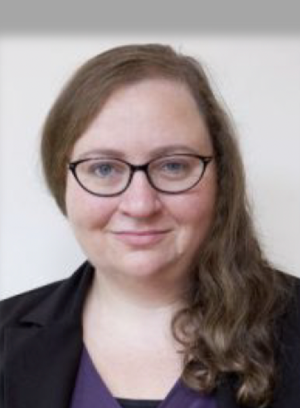 Semantic Networks as a Window into Language Representation, Processing and Identification
of Language Disorders
Semantic Networks as a Window into Language Representation, Processing and Identification
of Language Disorders
Arielle Borovsky, Ph.D.
Registration opening soon
Dr. Borovsky is a professor at Purdue University in Speech, Language, and Hearing Sciences, with a courtesy appointment in Psychological Sciences. Her area of specialization is in language development, with a particular focus on the skills that support early word learning and language processing skills. Her interdisciplinary work focuses on the cognitive, linguistic, and experiential factors that help children learn to communicate. She and her Llama Lab members employ various methods (e.g., computational modeling, ERP, and behavioral methods) to examine how humans learn language.
Past Presenters:
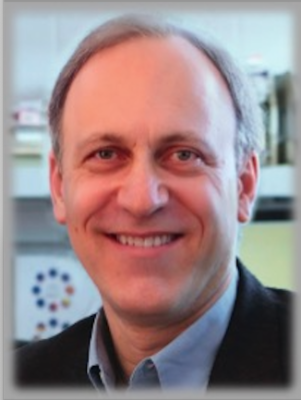
The Hidden Benefits of Sleep and Potential Pathways for Amplifying Them
Ken A. Paller, Ph.D.
Thursday March 13, 2025
3:30 - 5:00 PM
Dalton Woods Auditorium
Most people know that getting enough sleep helps them feel rested, but sleep does much more than just prevent tiredness. While it might seem like the brain is "shut off" during sleep, it is actually highly active throughout the night. One of its most important jobs is strengthening, reactivating, and re-shaping memories. In this talk, Dr. Paller will discuss his research that is exploring ways to boost these benefits, including the development of wearable technology at home to improve how sleep strengthens memory, creativity, and psychological well-being. By better understanding the brain’s nighttime activity, we can develop new strategies to make the most of our sleep and appreciate just how powerful it really is.
Dr. Paller is a cognitive neuroscientist and the James Padilla Chair in Arts and Sciences at Northwestern University. His research focuses on how memories are formed, stored, and later re-experienced — sometimes unconsciously influencing our thoughts and actions. His research group has developed new methods to strategically influence the mind during sleep, which in turn can improve many aspects of the waking mind. Dr. Paller also collaborates with Tibetan Monastic Scholars in research on sleep and dreaming. His hope is that scientific research can reveal additional ways to harness the sleeping mind to improve people’s lives.
His work has been featured on several news outlets such as BBC World Service, The World Science Festival, Discover Magazine, NY Times, LA Times, The Economist, NPR Science Friday, All Things Considered, and CBC Radio. He is also the recipient of a 2024 Director’s Pioneer Award from NIH.
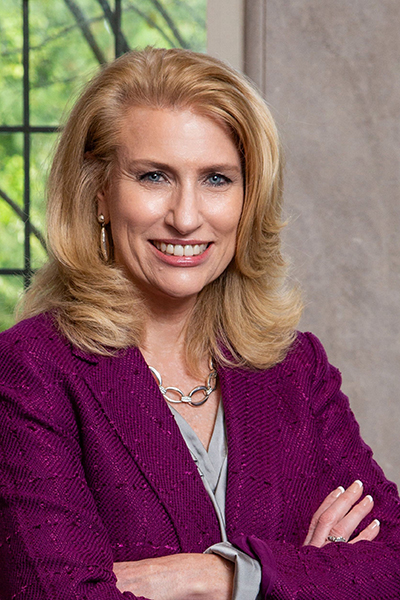 Brain Sculpting: Creating Optimal Neural Networks and Functions with Experience-Based
Neuroplasticity
Brain Sculpting: Creating Optimal Neural Networks and Functions with Experience-Based
Neuroplasticity
Kelly Lambert, Ph.D.
Thursday November 7, 2024
3:00 - 4:30 PM
Dalton Woods Auditorium
Kelly Lambert is the Trawick Professor of Behavioral Neuroscience at the University of Richmond where she investigates experience-based neuroplasticity and teaches multiple neuroscience courses. She has approximately 80 scholarly publications and has written two neuroscience textbooks and three mainstream books including Lifting Depression, The Lab Rat Chronicles, and Well-Grounded. She is currently writing Wild Brains: Translating Optimal Mental Health Strategies from the Bush to the Bedside. Lambert was awarded the Virginia Professor of the Year award in 2008 and, more recently, was recognized as one of three national finalists for Baylor University’s Robert Cherry Award for Great Teaching. In 2018, Lambert was the recipient of the Outstanding Achievement Award given by the International Behavioral Neuroscience Society. Her research targeting connections between physical effort and emotional resilience was featured on CBS Sunday Morning and her rat-driving research has been featured in over 1500 news stories across the world, including the Netflix series The Hidden Lives of Pets and the Canadian Broadcasting Corporation’s Rat City. In 2019, Lambert described her behaviorceuticals research perspective in a TEDx Bermuda talk. In 2023, she received the Society for Neuroscience’s Science Educator Award for her scientific outreach endeavors.
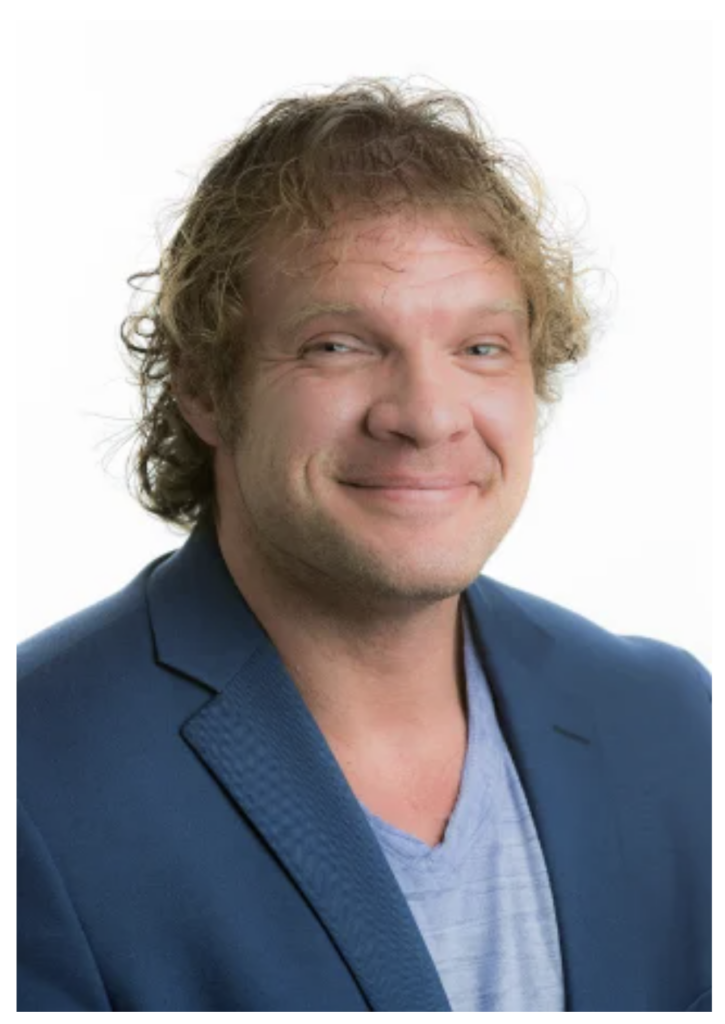 Sid O’Bryant, Ph.D.
Sid O’Bryant, Ph.D.
Building a large-scale research program on health disparities in Alzheimer’s disease: Lessons Learned and benefits of interdisciplinary science
Thursday Feb 29, 2024
Digital Media Center Theater
2:00 – 3:15:
Poster session in the lobby featuring current research being conducted at LSU on aging and brain health
3:30 – 5:00:
Keynote speech by Dr. O’Bryant
Dr. Sid O’Bryant’s is a Professor or Family Medicine and Osteopathic Manipulative Medicine as well as Professor and Executive Director of Institute for Translational Research at The University of North Texas’ Health Sciences Center. Hresearch is dedicated to precision medicine in Alzheimer’s disease and other neurodegenerative diseases, including Down syndrome, Lewy Body disease, Parkinson’s disease, traumatic brain injury, and others. Dr. O’Bryant’s multiple NIH grants focus on novel strategies for disease detection, screening into trials (therapeutic and prevention), and patient stratification for optimal treatment response. As part of this work, his lab has a strong focus on the impact of ethnicity/diversity on cognitive loss during the aging process and runs the one-of-a-kind Health & Aging Brain among Latino Elders (HABLE) study, which is the most comprehensive study of Mexican-American brain aging to date.
Register here.
 Wednesday April 19, 2023
Wednesday April 19, 2023
2:00 – 5:00 PM
Digital Media Center Theater
Please join us for a screening of “The Crash Reel”, the dramatic story of professional snowboarder Kevin Pearce and his life-changing recovery from a traumatic brain injury following a horrific snowboarding accident. Movie screening begins at 2:00 PM, followed by a panel discussion with TBI experts and LSU Mind Members at 4:00 PM! Panelists include Love Your Brain Mindset Facilitator Shannon Carlson, Clinical TBI Specialist Sara Mele, and Clinical Neuropsychologists and Associate Professor Dr. Matthew Calamia. This event is free and open to the public.
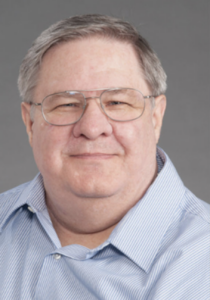 Human Memory: Can it Be Fixed?
Human Memory: Can it Be Fixed?
Robert E. Hampson
Thursday November 3, 2022
4:00 PM
Digital Media Center Theater
Dr. Robert Hampson is Professor of Physiology and Pharmacology at Wake Forest University School of Medicine. He conducts research on the processes by which memories are encoded within the mammalian brain and on developing new ways to detect, manipulate and even restore memories in people suffering from conditions such as Alzheimer’s Disease that affect the normal memory storage process. Funded by the Defense Advanced Research Projects Area (DARPA), he works closely with Neurologists and Neurosurgeons in studying memory to develop a prosthetic system for restoration of human memory. Dr. Hampson also teaches courses on science communication with a particular focus on the interpretation of science for public outreach.
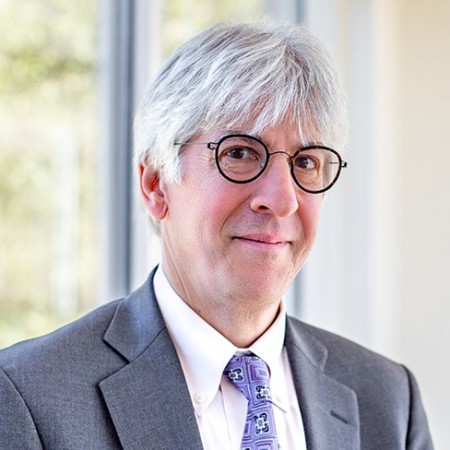 Steven Small
Steven Small
Wednesday April 27, 2022
3:00 PM
Digital Media Center Theater
Hybrid Event
Dr. Small is the Aage and Margareta Moller Distinguished Professorship in Behavioral and Brain Sciences at The University of Texas at Dallas. Dr. Small’s research involves direct investigation of human subjects, particularly in speech and language, and more recently clinical and fundamental neurobiological aspects of sports-related head impacts and mild traumatic brain injuries (concussions). He is the founder of the Society for the Neurobiology of Language and a fellow of the American Academy of Neurology (AAN), the American Neurological Association (ANA), and the American Association for the Advancement of Science (AAAS). Dr. Small holds a PhD in computer science from the University of Maryland, College Park and a medical degree (MD) from the University of Rochester.
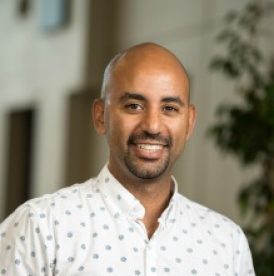 Taraz Lee
Taraz Lee
Thursday November 18, 2021
5:00 PM
Virtual Event
Dr. Lee is an Assistant Professor of Psychology at the University of Michigan and director of the Cognition, Control, and Action Lab. His research focuses on the cognitive and neural processes that contribute to learning, motivation, control, and performance in a variety of contexts, including motor skill learning, expertise, and the phenomenon of “choking” under pressure. Dr. Lee was also recently awarded a Parkinson’s Foundation Young Investigator Award to examine influences of cognitive control on motor function in people with Parkinson’s Disease.
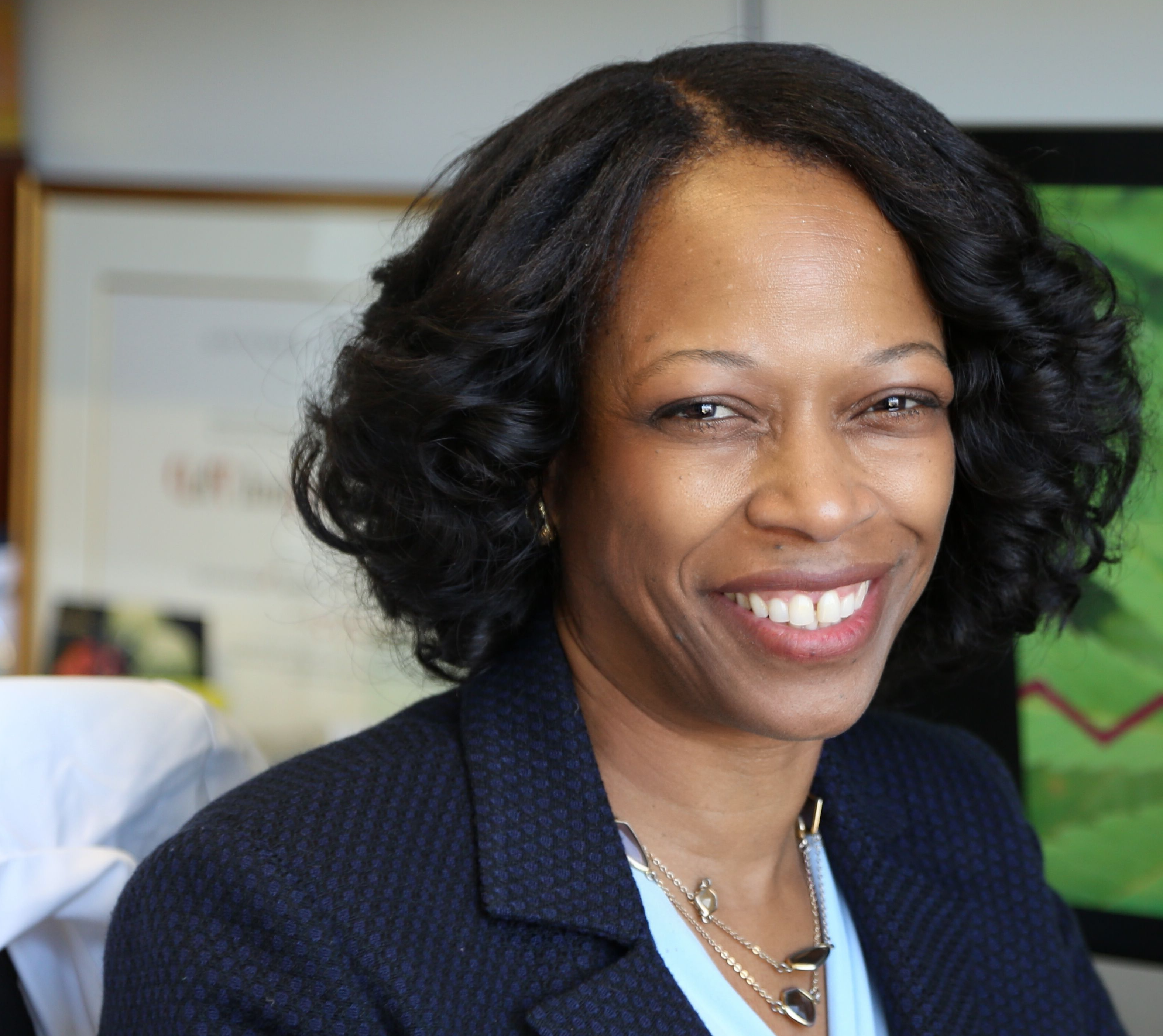 Yasmin Hurd
Yasmin Hurd
Monday April 12, 2021
4:00 PM
Virtual Event
Dr. Yasmin Hurd is the Director of the Addiction Institute within the Mount Sinai Behavioral Health System as well as the Ward Coleman Chair of Translational Neuroscience and Professor of Psychiatry and Neuroscience at the Icahn School of Medicine at Mount Sinai in New York. She is an internationally renowned neuroscientist whose translational research examines the neurobiology of drug abuse and related psychiatric disorders. Her research exploring the neurobiological effects of cannabis and heroin has significantly shaped the field. Using multidisciplinary research approaches, her research has provided unique insights into the impact of developmental cannabis exposure and epigenetic mechanisms underlying the drug’s protracted effects into adulthood and even across generations. Dr. Hurd’s basic science research is complemented by clinical laboratory investigations evaluating the therapeutic potential of novel science-based strategies for the treatment of opioid addiction and related psychiatric disorders. Based on these high impact accomplishments and her advocacy of drug addiction education and health, Dr. Hurd was inducted into the National Academy of Medicine that complements other honors she has received in the field.
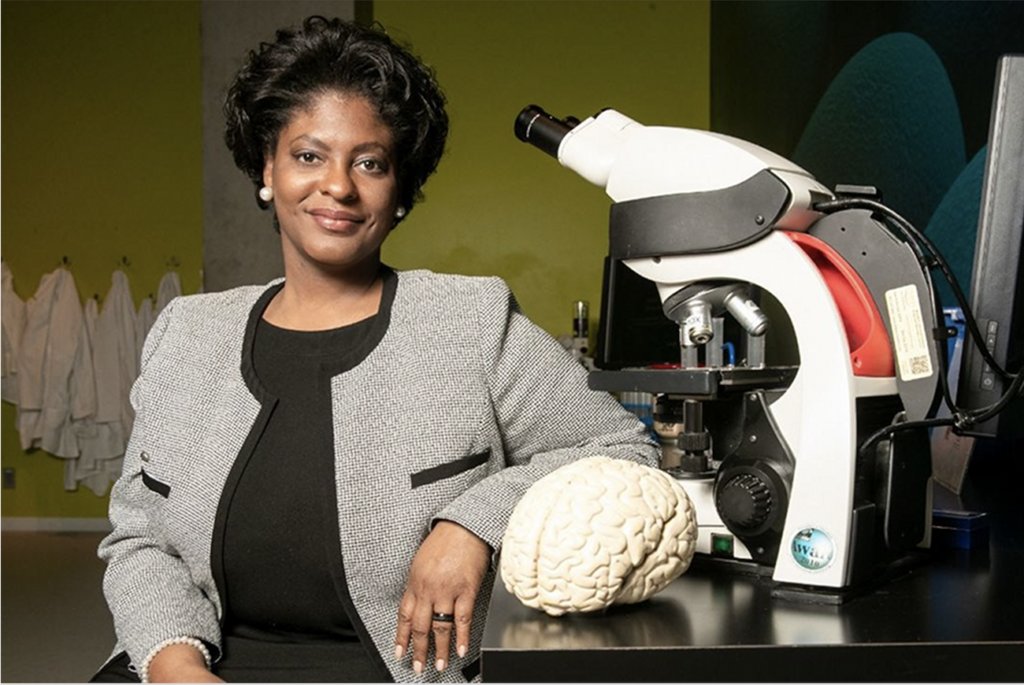 Joyonna Gamble-George
Joyonna Gamble-George
October 15, 2020
4:00 PM
Virtual Event
Joyonna Gamble-George, Ph.D., holds a Bachelor of Science in Biochemistry and Biology with Honors in Mathematics from Xavier University of Louisiana, a Master of Health Administration from the University of South Florida College of Public Health, and a PhD in Neuroscience from Vanderbilt University. As a neuroscientist, she has studied potential drug therapies for Alzheimer’s disease and affective disorder pathology and the molecular and synaptic consequences of drug abuse and addiction and HIV-1 infection. She currently serves as an AAS Science and Technology Policy Fellow at the National Institutes of Health.
Dr. Gamble-George is also a public health professional who has implemented numerous community-based initiatives to promote public health in populations impacted by health disparities. Moreover, she is the co-founder and the Chief Operations, Scientific, and Medical Officer of SciX, a biotech Internet of Things software applications and device development company searching for data science-based methods to combat brain disorders and other health issues.
As a scientist, she has been granted membership in seven honorary societies and is the recipient of over 20 awards for her leadership, philanthropy, and dedication to science while fostering diversity. In addition, her business acumen and advocacy for STEM-based entrepreneurship was honored with the Entrepreneur of the Year Award and as a finalist for the 2019 Lewis A. Shattuck Small Business Advocate of the Year Award.
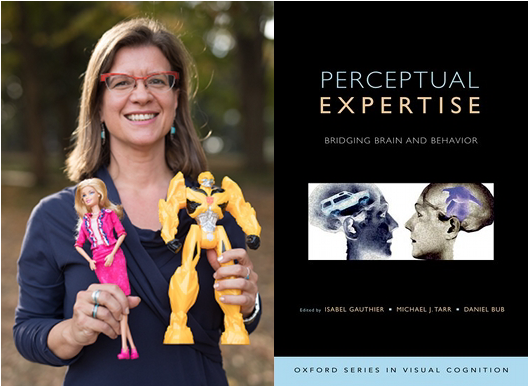
Isabel Gauthier
November 11, 2019
3:00 PM
Digital Media Theater
Dr. Isabel Gauthier is the David K. Wilson Chair of Psychology at Vanderbilt University. She is a leading researcher in how people learn to categorize, recognize and represent faces and objects. Much of her research focuses on what happens in the brain when people become experts in certain categories such as faces, cars, birds, musical notations, etc. Her work also suggests that most humans become “face experts” at an early age and that expertise may lead to the development of special face-specific processing modules in the brain.
Dr. Gauthier’s research has been funded by the National Institutes of Health (NIH), the National Science Foundation (NSF) and the James S. McDonnell Foundation. She has received numerous awards and honors for her work, including being named the Southeastern Conference (SEC) Professor of the Year in 2015.
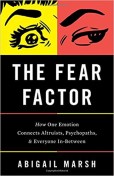

Abigail Marsh
April 26, 2019
4:00 PM Digital Media Center Theater
Past Speakers:Abigail Marsh is an Associate Professor in the Department of Psychology and the Interdisciplinary Neuroscience Program at Georgetown University. Dr. Marsh directs the Laboratory on Social & Affective Neuroscience, research in which is aimed at addressing questions that include: How do people understand what others think and feel? What drives us to help other people? What prevents us from harming them? Her work tackles these questions using multiple approaches that include functional and structural brain imaging in adolescents and adults from both typical and special populations, as well as behavioral, cognitive, genetic, and pharmacological methods. Current research projects include behavioral and brain imaging investigations of altruism among living altruistic kidney donors and stem cell donors, and behavioral and brain imaging investigations of the roots of conduct problems in children and adolescents.
Dr. Marsh's research has been funded by the National Institutes of Health, the National Science Foundation, and the John Templeton Foundation and she has received awards that include the Wyatt Memorial Award for translational research from the National Institute of Mental Health and the Cozzarelli Prize for scientific excellence and originality from the Proceedings of the National Academy of Sciences. She is also the author of The Fear Factor.
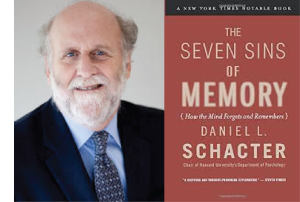
Daniel Schacter
April 4, 2019
6:00 PM Digital Media Center Theater
Daniel L. Schacter is the William R. Kenan, Jr. Professor of Psychology at Harvard University. Schacter's research explores the relationship between conscious and unconscious forms of memory, the nature of memory distortions, how individuals use memory to imagine possible future events, enhancement of online learning, and the effects of aging on memory. He has received a number of awards for his research, including a Guggenheim Fellowship (1998), a MERIT Award from the National Institute on Aging (2000-2012) the Howard Crosby Warren Medal (2009) from the Society of Experimental Psychologists, and the Award for Distinguished Scientific Contributions from the American Psychological Association (2012). Schacter is the author of Searching for Memory and The Seven Sins of Memory, both of which were named as New Times Notable Books of the Year, and winners of the APA's William James Book Award.

Women in Neuroscience: A Film Screening & Panel Discussion March 20, 2019 4:00 PM Digital Media Center Theater
Join LSU MIND for this special Women's History Month event, featuring a one-hour film followed by an interdisciplinary panel discussion with Louisiana neuroscientists.
"My Love Affair with the Brain: The Life & Science of Dr. Marian Diamond" is an award-winning documentary about one of the founders of modern neuroscience. Dr. Diamond's team was the first to show that the brain can change with experience and improve with enrichment, now understood as the well-established principle of neuroplasticity. Dr. Diamond also famously studied the brain of Albert Einstein; her findings generated new interest in the contributions of glial cells. This film captures the "pure joy", as Dr. Diamond described her 60+ year research career, of the quest to understand the human brain.
Panel discussants include local neurologist Anne L. Foundas, LSU Biological Sciences faculty Evanna Gleason, LSU Psychology faculty Heather D. Lucas, and Pennington Biomedical Research Center faculty Emily Qualls-Creekmore. The discussion will be moderated by LSU Communication Sciences & Disorders faculty E. Susan Duncan.
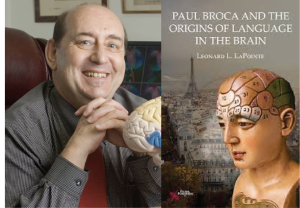
Leonard LaPointe March 15, 2019 4:00 PM Digital Media Center Theater

 Edward Awh Friday, February 15, 2019
Edward Awh Friday, February 15, 2019
4:00 PM Digital Media Center Theater
Edward Awh is a professor in the Department of Psychology, The Institute for Mind and Biology, and the Grossman Institute for Neuroscience, Quantitative Biology and Human Behavior at the University of Chicago. His laboratory focuses on behavioral and neural studies of memory and attention. Dr. Awh's lab employs psychophysics, EEG, and functional MRI to learn about the neural mechanisms underlying these basic cognitive processes and the relationship between these processes and other cognitive functions. Recent work has focused on the use of neural decoding techniques to track the contents of online memories and the locus of covert attention.
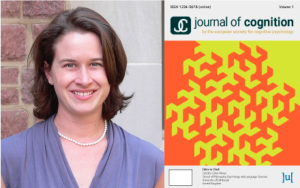
Candice Morey November 19, 2018
3:00 PM Digital Media Center Theater
Candice Morey is interested in understanding what limits memory for the immediate past, explaining why these lapses occur so universally, and discovering factors that can help mitigate immediate memory limits. She also advocates for improving the transparency of research so that all of the products of research – from stimuli, to data, to published conclusions – are maximally available to inform decision-making in academia and beyond. Materials supporting her research projects are available on my Open Science Framework page. Dr. Morey is currently the editor-in-chief of the Journal of Cognition and was the 2017 Psychonomic Society Early Career Award Winner.
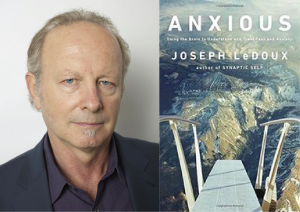 Joseph LeDoux
Joseph LeDoux
October 12, 2018
4:00 PM Digital Media Center Theater
Joseph LeDoux is the Henry and Lucy Moses Professor of Science at NYU in the Center for Neural Science, and he directs the Emotional Brain Institute of NYU and the Nathan Kline Institute. He is also a Professor of Psychiatry and Child and Adolescent Psychiatry at NYU Langone Medical School. His work is focused on the biological underpinnings of emotion and memory, especially brain mechanisms related to fear and anxiety. He is a fellow of the American Association for the Advancement of Science, a fellow of the New York Academy of Science, a fellow of the American Academy of Arts and Science, and the recipient of the 2005 Fyssen International Prize in Cognitive Science. He is the author of Anxious, which received the 2016 William James Book Award from the American Psychological Association. LeDoux is also an alumnus of LSU and an LSU football fan!
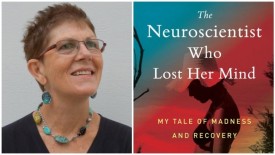 Barbara Lipska Note: Due to unforeseen circumstances, Dr. Lipska has had to cancel her visit to
LSU this year.
Barbara Lipska Note: Due to unforeseen circumstances, Dr. Lipska has had to cancel her visit to
LSU this year.
Barbara Lipska is the director of the Human Brain Collection Core (HBCC) at the National Institute of Mental Health (NIMH). She has been at the NIMH since 1989 as a researcher and a chief of a molecular biology lab. During this time, she became and internationally recognized leader in animal modeling of schizophrenia, and in postmortem human brain research She became a director of the HBCC in 2013. Her primary research interests are in mental illness and human brain development. She is the author of The Neuroscientist Who Lost Her Mind: My Tale of Madness and Recovery, a critically acclaimed memoir of Lipska's own battle with and recovery from brain cancer.